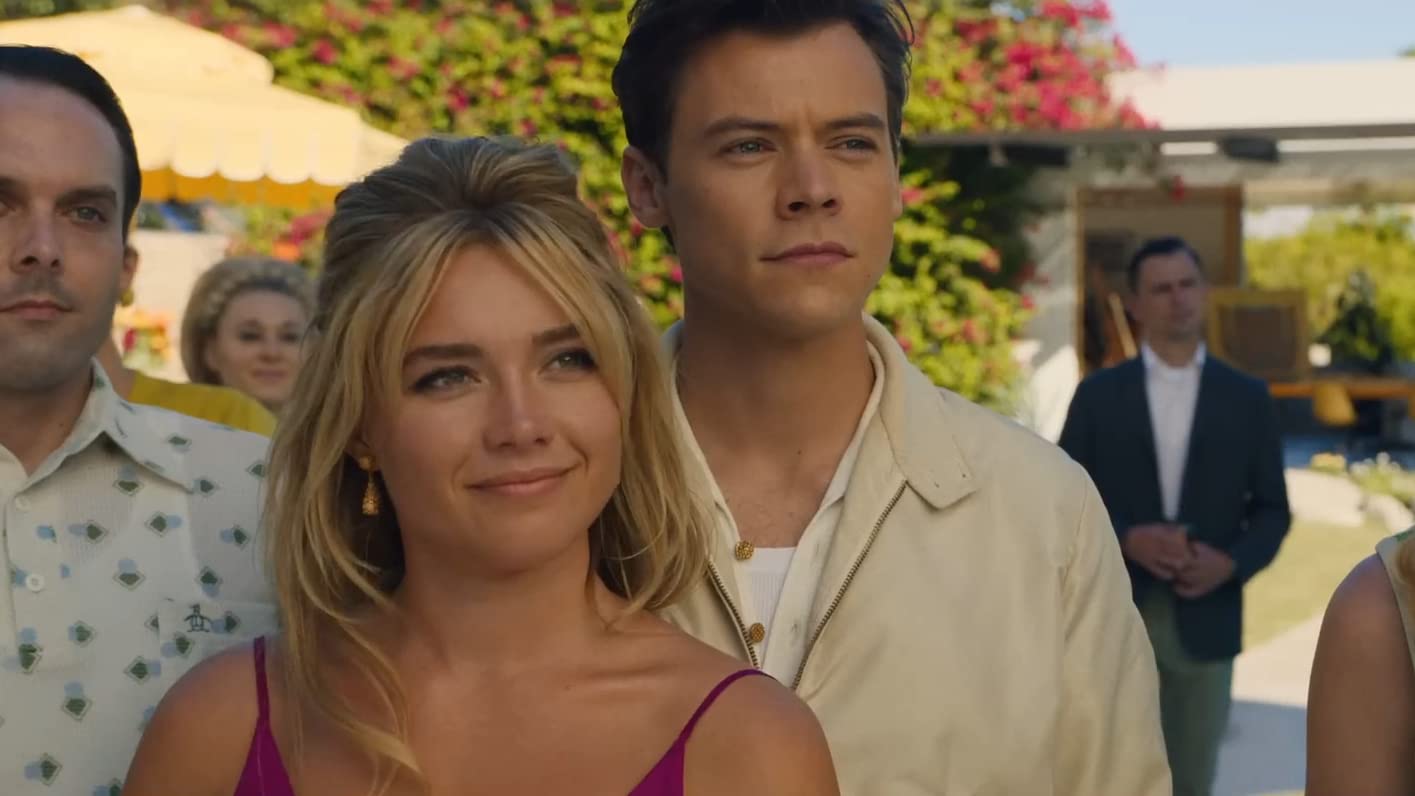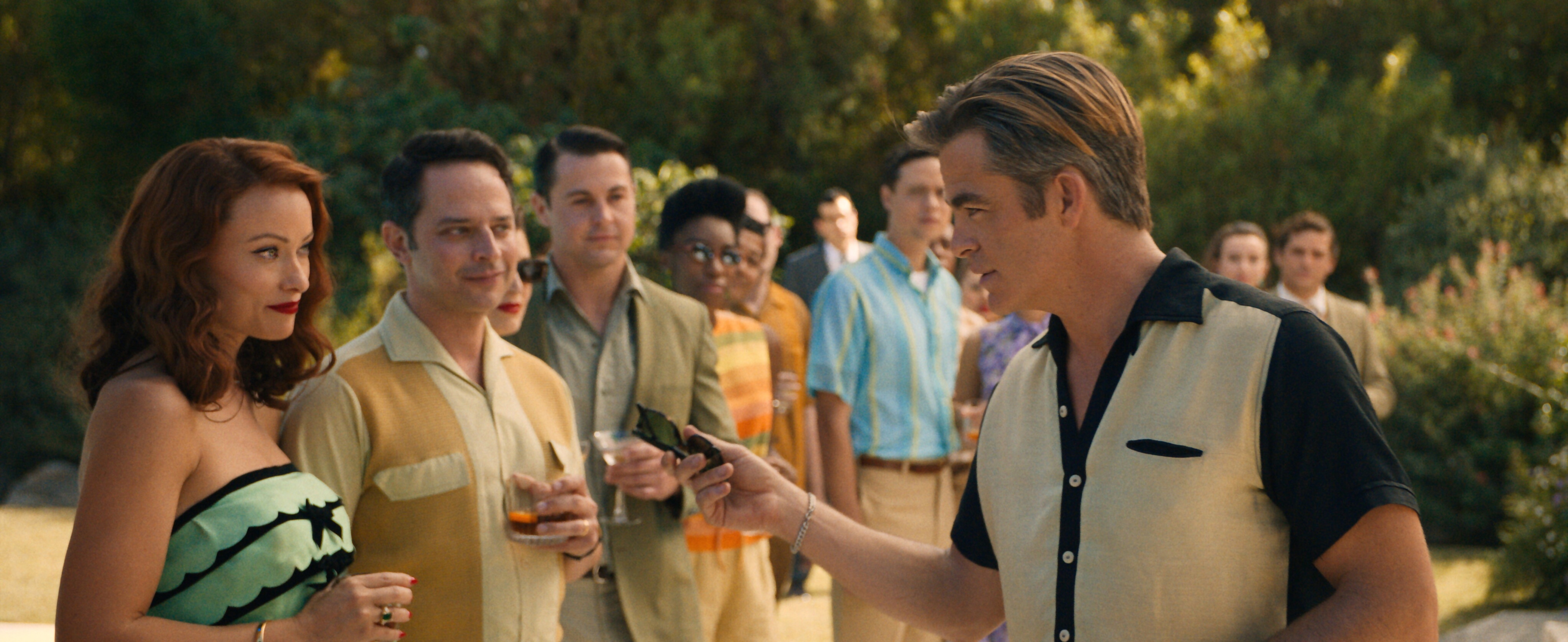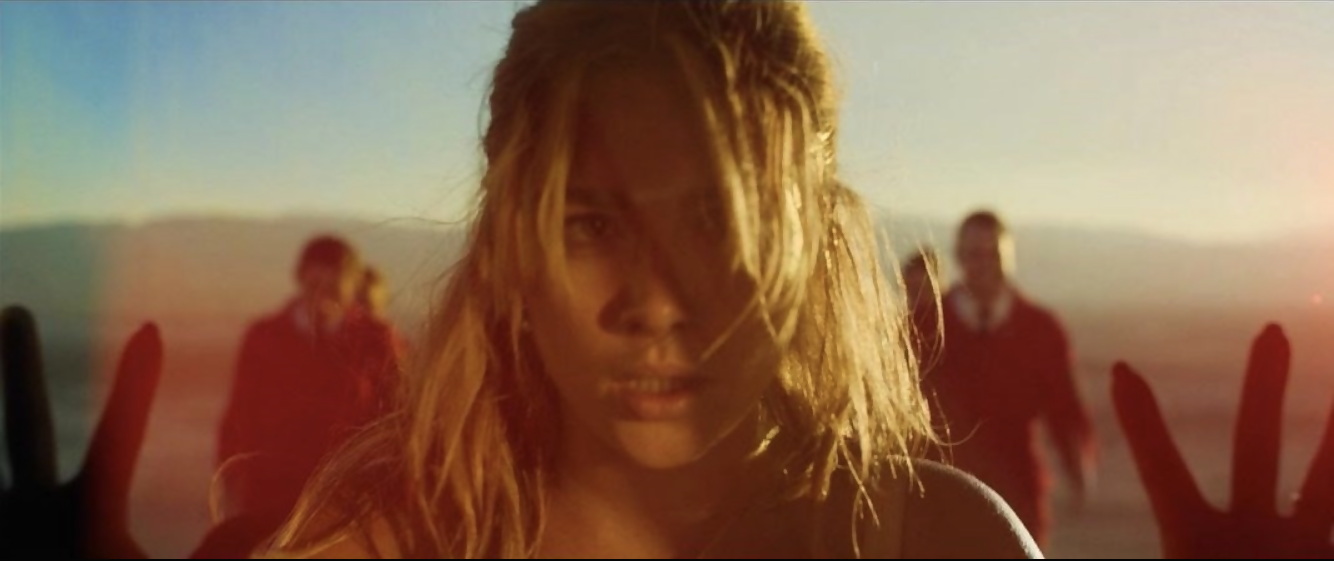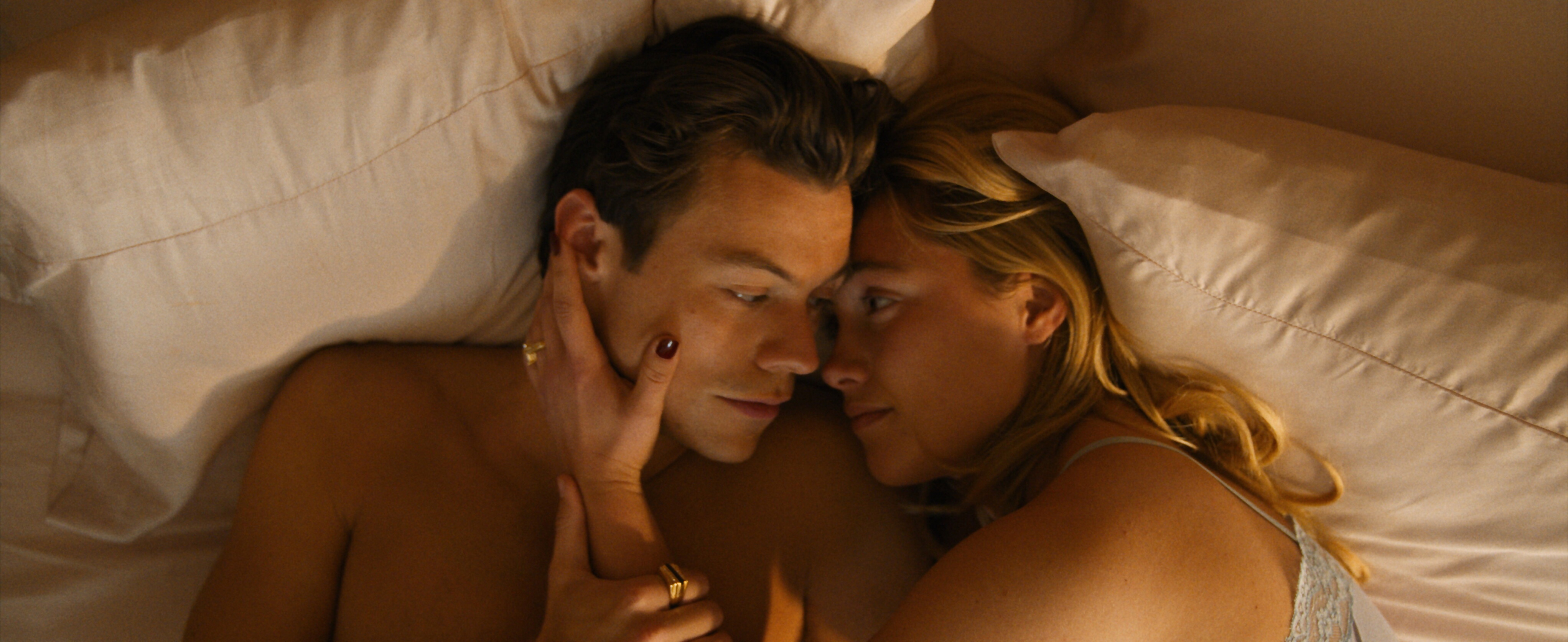
★★★★☆
The drama behind the scenes of Olivia Wilde’s Don’t Worry Darling seems to have stolen the film’s thunder, but we’ve finally seen it and have our verdict here.
It seems that the drama that precedes Olivia Wilde’s second directorial effort is more interesting than the film it surrounds. Thankfully, regardless of what happened behind the scenes, Don’t Worry Darling is a very strong film on its own merits and features a powerhouse performance from Florence Pugh.
Pugh plays Alice, the somewhat docile housewife to Harry Styles’ Jack. The two have just moved to Victory, an ambitious, glossy community in the desert where the men leave for work after a hearty breakfast cooked by their wives, who stay and lounge by the pool, drinking cocktails all day before cleaning and cooking some more for their weary husbands.
After another woman in the community has a breakdown of sorts, Alice too begins to experience strange occurrences and starts to wonder if they really know who the founder of the community, Frank (Chris Pine) is and what is actually going on.

Credit: Warner Bros
Admittedly, Don’t Worry Darling doesn’t reinvent the wheel of the domestic thriller. It tends to trip over its own genre contrivances but for the most part, Wilde’s film has this lovely 90s feel to it. Whatever happened to the mid-budget popcorn flicks? Don’t Worry Darling never gets too swept up in its own high concept, but places entertaining its audience as a top priority. This doesn’t mean it has nothing to say.
Don’t Worry Darling is very concerned with the American dream and gender politics. The more you (and indeed, Alice) examine Victory, the clearer it becomes that it’s the patriarchal dream. The women are perfectly tamed, devoted to serving their husbands, with perfectly coiffed hair, pristine dresses and glowing skin.
The women even attend communal ballet classes, argubaly the most submissive form of dance. In unity, the women practice collective perfection in the form of predetermined steps, arching their backs and stretching their arms in perfect lines at the command of someone else.
Wilde’s film is perhaps a bit too heavy-handed with its themes and the symbolism, but there is also something wildly ambitious and admirable about her approach. The shot in the trailer of Styles unashamedly – excitedly even! – going down on Pugh had people frothing at the mouth but while seeing someone as famous as Styles performing oral sex on a woman is scandalous and maybe even progressive, the more interesting aspect of the shot is how Wilde frames it.

The scene occurs relatively early in the film. Jack has been at work all day and Alice has prepared a delicious, juicy roast for him, perfectly presented on the dinner table. Except Jack can’t keep his hands off Alice and simply throws her on the table to eat her instead, pretty literally. Swept up in pleasure and passion, Alice pushes everything else off the table, except the giant hunk of meat, glistening with the juices just above her on the table.
The shot seems almost accidental, but nothing is accidental in films like Don’t Worry Darling, everything is carefully considered. Wilde cleverly juxtaposes Alice with the meat; these women are meant to be consumed by the men, they are owned, they are to be enjoyed.
To their credit, Pugh and Styles excellently convey pure unfiltered lust. Whether they have romantic chemistry seems like a separate issue, but desire they can do. Pugh completely carries the film with an electric performance; the focus is so tightly on Alice, none of the fine ensemble cast really matter. Only Chris Pine stands out in a delightfully creepy role. The problem with Pugh is that she’s become the Ryan Gosling of her generation; she’s so magnetic she automatically outshines everyone else on screen and no one stands a chance against her.
But of course, everyone is wondering whether Harry Styles is any good or not. And honestly, I’m not sure. The problem is more to do with the writing of his character, who is a completely blank slate. Jack comes and goes from the narrative, disappearing for long periods of time and is mostly there to wonder what is wrong with his wife. He’s not a particularly active participant in the narrative, until later on when the action ramps up.

Credit: Warner Bros.
Matthew Libatique’s camerawork is gorgeous, capturing this strange candy-coloured reality. John Powell’s score is also powerful, often sounding like a choir of women gasping or perhaps screaming or pleading. Wilde’s direction might be a little brash at times, but I can’t help but admire the boldness of her sophomore film. She also inserts herself into the film, in the role of Alice’s best friend Bunny, like so many male directors have done before, such as Bradley Cooper, Clint Eastwood and George Clooney.
The ending of Don’t Worry Darling will be its most divisive element. It either works for you or it doesn’t. All depends on how willing you are to suspend your disbelief over a film that comes with so many expectations and external drama. I’d recommend just grabbing some popcorn and enjoying Wilde’s ride.
Don’t Worry Darling is in cinemas September 23.




